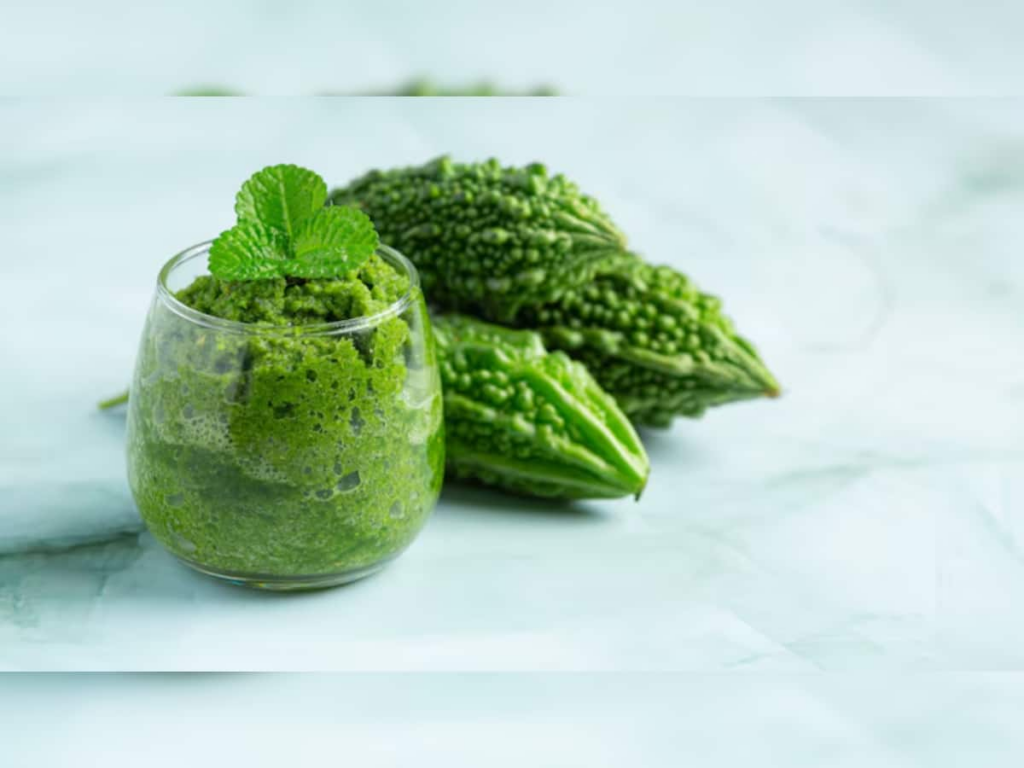Karela, also known as bitter gourd, is a nutrient-rich vegetable celebrated for its numerous health benefits. Drinking karela juice regularly can improve overall well-being, boost immunity, and support several bodily functions.
Here are five compelling reasons to include karela juice in your daily routine:-
1. Helps Control Blood Sugar Levels
Karela is well-known for its ability to help regulate blood sugar levels. It contains compounds like charantin and polypeptide-p, which mimic insulin and improve glucose metabolism. Regular consumption of karela juice can be especially beneficial for people with diabetes.
2. Boosts Immunity
Rich in vitamin C and antioxidants, karela juice strengthens the immune system. These nutrients help fight infections, reduce inflammation, and protect the body from free radical damage. Drinking it regularly can improve overall immunity.
(Also Read: Is Coconut Water Truly A Super Drink? Discover Its Benefits For Gut Health)
3. Supports Liver Health
Karela juice acts as a natural detoxifier for the liver. It helps cleanse the liver, supports bile production, and promotes proper digestion. Regular intake can enhance liver function and aid in overall detoxification.
4. Improves Digestion
Bitter gourd contains dietary fiber that aids in smooth digestion and prevents constipation. Karela juice stimulates digestive enzymes, improves metabolism, and promotes a healthy gut.
5. Promotes Skin Health
The antioxidants and vitamins in karela juice help combat skin problems such as acne, pigmentation, and blemishes. It purifies the blood and improves skin texture, giving a natural glow.
Karela juice may taste bitter, but its health benefits are undeniable. From controlling blood sugar and boosting immunity to supporting liver health and improving digestion, incorporating this juice into your daily routine can have a profound impact on your overall well-being. Start with small quantities and gradually increase as your body adjusts to its strong taste.
(This article is meant for informational purposes only and must not be considered a substitute for advice provided by qualified medical professionals.)

